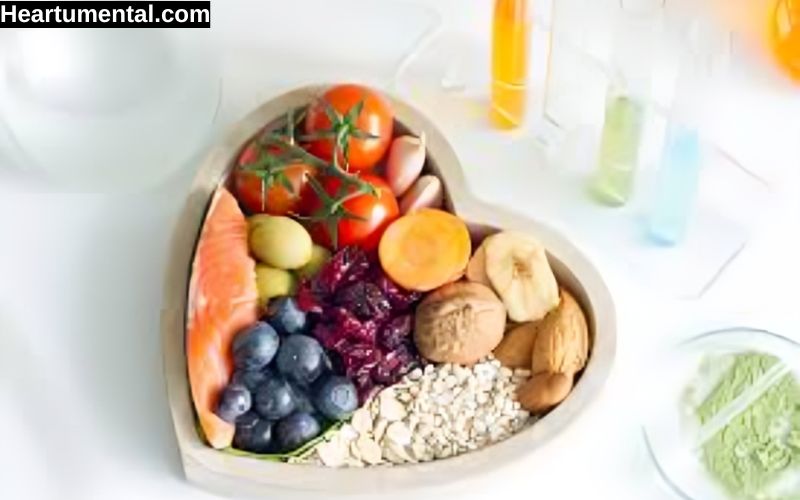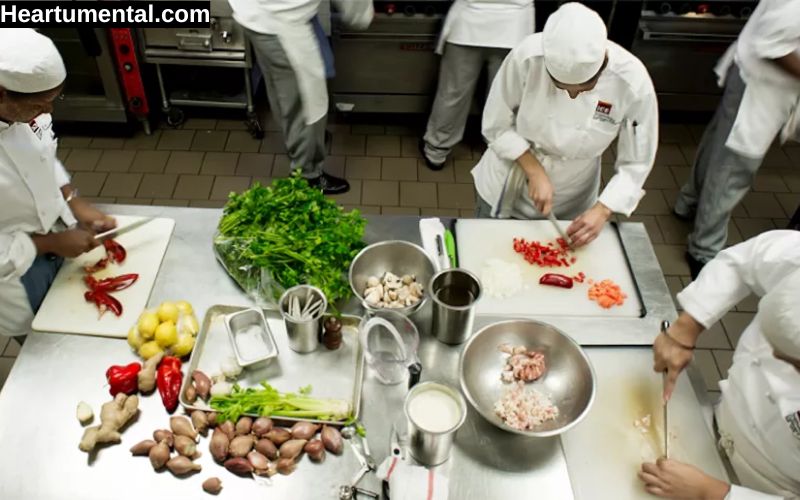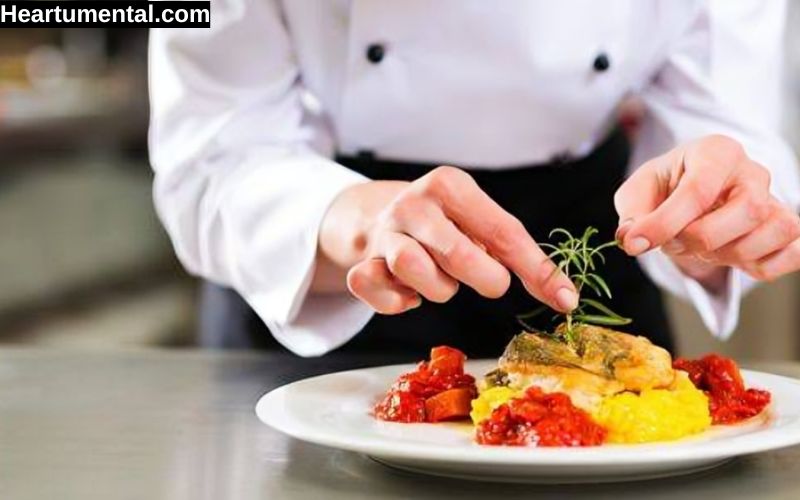Cooking is more than just mixing ingredients; it’s a blend of science, art, and emotion. Whether you’re a novice in the kitchen or a seasoned chef, recipes are the backbone of creating memorable meals. But why is a recipe important? In this article, we’ll explore the heartumental reasons—combining heartfelt and fundamental elements—that make recipes essential for cooking success. From fostering consistency to sparking creativity, recipes are the key to unlocking culinary magic. Let’s dive into why recipes matter and how they bring heart to your kitchen.
What Is a Recipe and Why Does It Matter?
A recipe is a structured guide that outlines ingredients, measurements, and step-by-step instructions to create a dish. It’s like a roadmap for your culinary journey, ensuring you reach your destination: a delicious meal. The term heartumental reflects the emotional and foundational role recipes play—connecting us to traditions, loved ones, and personal creativity while providing a reliable framework.
So, why is a recipe important? Here are the core reasons:
- Consistency in Results: Recipes ensure your dish tastes the same every time.
- Time and Resource Efficiency: They save you from guesswork and wasted ingredients.
- Cultural and Emotional Connection: Recipes preserve family traditions and memories.
- Skill Development: They teach techniques and boost kitchen confidence.
- Creativity and Customization: Recipes provide a foundation for culinary innovation.
Let’s explore these reasons in detail, with practical insights and examples to make your cooking journey both enjoyable and meaningful.
The Heartumental Reasons Recipes Are Essential

1. Consistency: The Key to Culinary Success
A recipe ensures that your dish turns out as intended, every single time. Whether it’s a creamy chocolate cake or a spicy chicken curry, precise measurements and instructions eliminate guesswork. This consistency is vital for:
- Replicating Favorites: Imagine trying to recreate your grandma’s famous lasagna without a recipe. A written guide ensures you capture the same flavors.
- Professional Results: Restaurants rely on recipes to deliver consistent quality to customers.
- Building Trust: When you follow a recipe and get great results, you gain confidence in your cooking skills.
Example: Baking Precision
Baking is a science where measurements matter. A recipe for chocolate chip cookies might specify 1 cup of flour and ½ tsp of baking soda. Deviating from these can lead to flat or overly dense cookies. A recipe keeps your baking on point.
| Ingredient | Without Recipe | With Recipe |
| Flour | Eyeballed, inconsistent | 1 cup, precise |
| Baking Soda | Guessed, may overpower | ½ tsp, balanced |
| Result | Flat or dense cookies | Perfectly chewy cookies |
2. Efficiency: Saving Time and Resources
Recipes streamline the cooking process by providing a clear plan. This saves time, reduces food waste, and ensures you have all ingredients on hand. Here’s how:
- Pre-Planning: A recipe lists ingredients upfront, so you avoid mid-cooking grocery runs.
- Portion Control: Recipes specify quantities, preventing overbuying or wasting ingredients.
- Time Management: Step-by-step instructions help you organize tasks efficiently.
Practical Tip: Meal Prep
For busy individuals, recipes are a lifesaver. A meal-prep recipe for a quinoa salad can guide you to prepare a week’s worth of lunches in one go, saving time and effort.
| Task | Without Recipe | With Recipe |
| Shopping | Missing ingredients | Complete grocery list |
| Cooking Time | Trial and error delays | Streamlined steps |
| Waste | Excess ingredients | Exact portions |
3. Cultural and Emotional Connection
Recipes are more than instructions—they’re a bridge to heritage, family, and memories. The heart in heartumental shines here, as recipes carry emotional weight:
- Preserving Traditions: Recipes passed down through generations keep cultural dishes alive, like a cherished recipe for Diwali sweets or Thanksgiving stuffing.
- Creating Memories: Cooking a family recipe with loved ones fosters bonding and nostalgia.
- Sharing Love: A homemade dish made from a recipe shows care and effort, making meals meaningful.
Story: Grandma’s Secret Sauce
Consider a recipe for your family’s spaghetti sauce, handwritten by your grandmother. Each time you make it, you’re transported back to childhood dinners filled with laughter. That recipe isn’t just food—it’s a piece of your heart.
4. Skill Development: Building Kitchen Confidence
Recipes are like training wheels for cooks. They teach fundamental techniques and help you grow as a chef. Here’s how:
- Learning Techniques: Recipes introduce skills like sautéing, kneading, or tempering.
- Structured Learning: Beginners can follow simple recipes to master basics before experimenting.
- Confidence Boost: Successfully following a recipe proves you can cook, encouraging you to try more complex dishes.
Beginner-Friendly Recipe Example
A simple recipe for scrambled eggs teaches whisking, heat control, and seasoning. Once mastered, you can move on to omelets or soufflés.
| Skill | Recipe Example | What You Learn |
| Whisking | Scrambled Eggs | Even mixing |
| Heat Control | Pancakes | Avoiding burning |
| Seasoning | Roasted Vegetables | Balancing flavors |
5. Creativity: A Foundation for Innovation
While recipes provide structure, they also spark creativity. Once you understand a recipe’s framework, you can tweak it to suit your tastes. This is the mental part of heartumental—using your mind to innovate.
- Customization: Swap ingredients, like using almond milk instead of dairy in a smoothie.
- Experimentation: Adjust spices or add new elements to make a recipe your own.
- Inspiration: Recipes inspire you to create entirely new dishes based on learned techniques.
Example: Personalizing a Recipe
A basic chili recipe might call for kidney beans and beef. You could swap in black beans and turkey for a healthier twist, or add chipotle for a smoky kick. The recipe is your starting point, but your creativity makes it unique.
How Recipes Impact Different Types of Cooks
Recipes cater to various skill levels and cooking styles. Here’s how they benefit different types of cooks:

| Cook Type | How Recipes Help |
| Beginners | Provide clear instructions, build confidence, and teach basic techniques. |
| Home Cooks | Save time, ensure consistent results, and allow for family-friendly meal planning. |
| Professional Chefs | Standardize dishes for restaurants and inspire new menu creations. |
| Creative Cooks | Offer a foundation for experimentation and personalization. |
The Science Behind Recipes: Why Precision Matters
Cooking is both an art and a science. Recipes ensure the scientific aspect is covered, especially in baking or complex dishes. Here’s why precision is key:
- Chemical Reactions: Baking relies on precise ratios for leavening agents like baking powder to work.
- Flavor Balance: Too much salt or spice can ruin a dish; recipes guide proper seasoning.
- Texture: Exact measurements ensure the right texture, like a fluffy cake or creamy soup.
Case Study: Bread Baking
A bread recipe specifies 500g of flour, 10g of yeast, and 300ml of water. These ratios ensure proper gluten development and fermentation. Without a recipe, your bread might be dense or overly sticky.
Emotional Benefits: Recipes as a Source of Joy
Recipes do more than feed the body—they nourish the soul. Here’s how they bring joy:
- Sense of Accomplishment: Completing a recipe feels rewarding, boosting your mood.
- Connection to Others: Sharing a dish made from a recipe strengthens relationships.
- Stress Relief: Cooking from a recipe can be meditative, offering a creative outlet.
Pro Tip: Mindful Cooking
Choose a recipe that excites you, like homemade pizza. Focus on each step—kneading dough, spreading sauce, sprinkling cheese. This mindful process can be a relaxing escape from daily stress.
Practical Tips for Using Recipes Effectively
To make the most of recipes, follow these tips:
- Read the Recipe First: Understand the steps and gather all ingredients before starting.
- Measure Accurately: Use measuring cups and spoons for precision, especially in baking.
- Prep Ingredients: Chop, measure, and organize ingredients (mise en place) to streamline cooking.
- Take Notes: Jot down tweaks or notes for next time, personalizing the recipe.
- Experiment Gradually: Once comfortable, adjust one element at a time to avoid disasters.
Common Recipe Mistakes and How to Avoid Them
Even with a recipe, mistakes happen. Here’s how to avoid common pitfalls:
| Mistake | Solution |
| Skipping Steps | Read the recipe thoroughly before starting. |
| Incorrect Measurements | Use proper measuring tools, not kitchen spoons. |
| Ignoring Timing | Follow cooking times and check for doneness (e.g., toothpick test for cakes). |
| Overcomplicating | Start with simple recipes to build confidence before tackling complex ones. |
Recipes in the Digital Age: Technology’s Role
In 2025, recipes are more accessible than ever, thanks to technology. Here’s how digital tools enhance the heartumental value of recipes:
- Recipe Apps: Apps like Yummly or Paprika organize recipes and suggest meal plans.
- Online Communities: Platforms like X share user-generated recipes, fostering inspiration.
- Video Tutorials: YouTube and TikTok offer visual guides, making recipes easier to follow.
- Smart Kitchen Tools: Devices like smart ovens sync with recipes for precise cooking.
Example: Social Media Inspiration
A quick search on X for “heartumental recipes” might reveal a viral post about a family’s secret cookie recipe, complete with tips and emotional stories. These platforms make recipes a shared experience.
The Future of Recipes: Trends to Watch
As cooking evolves, so do recipes. Here are trends shaping their future:
- Sustainability: Recipes focus on local, seasonal, and plant-based ingredients.
- Global Fusion: Combining cuisines, like Korean tacos or Indian-inspired pizza.
- AI-Powered Recipes: Tools like Grok 3 suggest personalized recipes based on preferences.
- Health-Conscious Cooking: Recipes cater to dietary needs, like gluten-free or keto.
FAQs
Why do recipes sometimes fail?
Recipes can fail due to inaccurate measurements, skipping steps, or using different ingredients. Always follow the recipe closely and use proper tools.
Can I skip a recipe and cook by instinct?
While experienced cooks can improvise, recipes provide a reliable foundation, especially for beginners or complex dishes.
How do I make a recipe my own?
Start by mastering the original recipe, then experiment with small changes, like swapping herbs or adjusting spices.
Are recipes necessary for simple dishes?
For basic dishes, recipes may not be essential, but they still ensure consistency and save time.
Where can I find reliable recipes?
Check trusted sources like cookbooks, reputable websites (e.g., Serious Eats, Bon Appétit), or community-driven platforms like X for user-tested recipes.
Conclusion
Recipes are more than instructions—they’re a heartumental part of cooking, blending emotion, tradition, and precision. They ensure consistency, save time, connect us to our roots, build skills, and spark creativity. Whether you’re cooking for yourself, your family, or a crowd, a recipe is your trusted guide to creating meals that nourish both body and soul.
So, next time you’re in the kitchen, embrace the recipe. It’s not just a list of steps—it’s a tool to create memories, master techniques, and express your unique flair. Start with a simple recipe, make it your own, and let the heartumental magic of cooking unfold.

